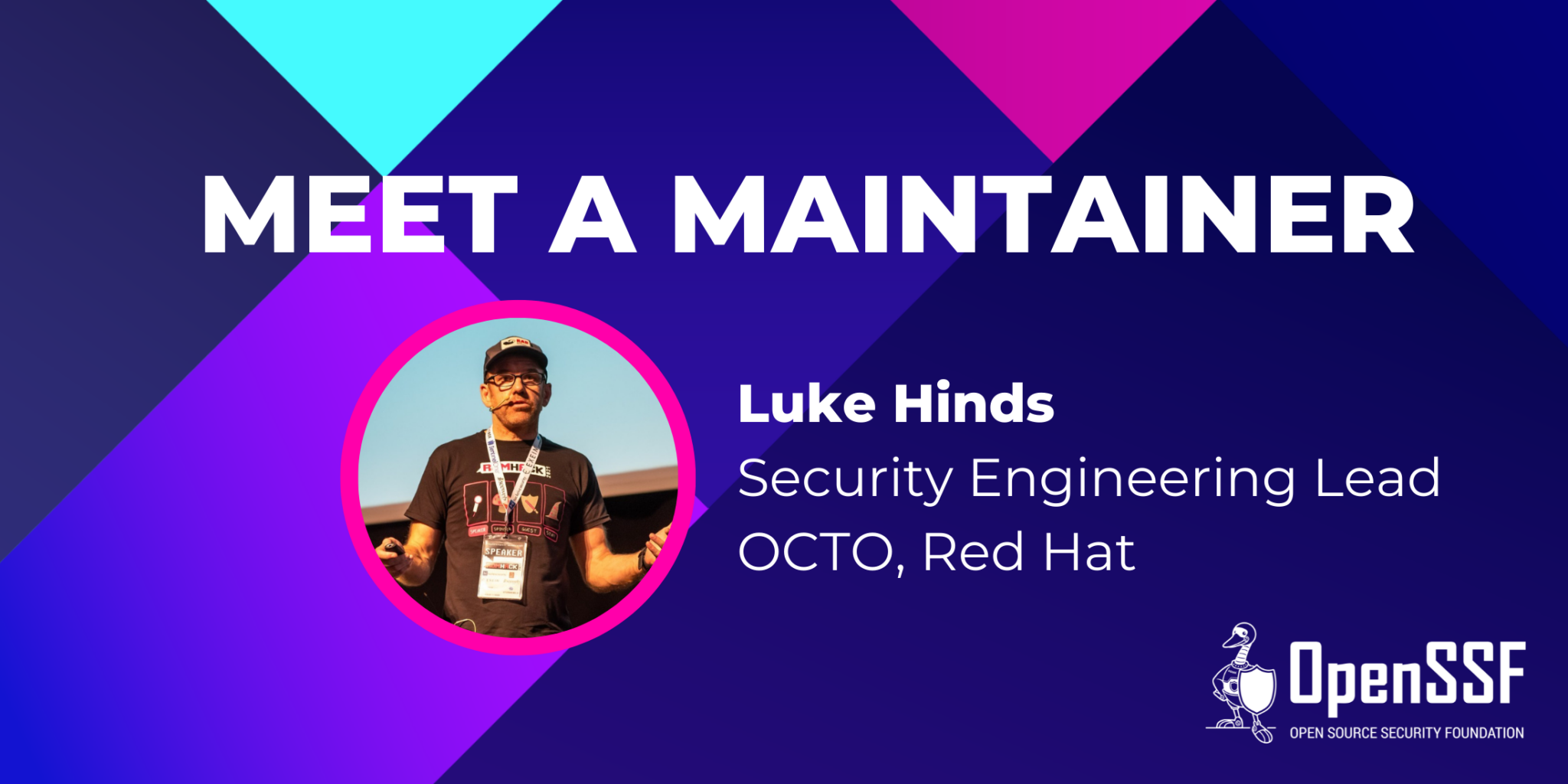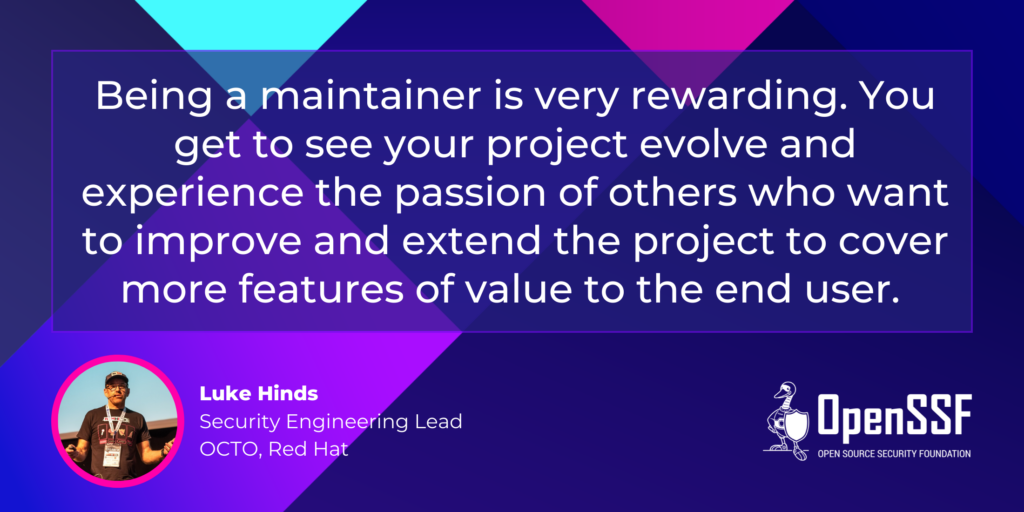
Maintainers play a vital role in the OpenSSF and the Linux Foundation and we think you should get a chance to meet some of the amazing individuals powering open source software (OSS) security initiatives. Over the next few weeks we’ll be featuring maintainers and contributors and hearing how they came to the community, what their experiences have been like, and what advice they have for others.
Meet Luke Hinds, Security Engineering Lead, OCTO, Red Hat
Luke Hinds is a software engineer living in the UK. He has been focused on security for a good number of years. He is a member of the OpenSSF TAC and helped start projects such as Sigstore and Keylime. Luke works within the Emerging Technologies group in Red Hat’s CTO office, where he leads a team working on open source security. He has held numerous community roles, such as the Kubernetes Security Team and as an elected Project Team Lead for the OpenStack Security Group.
How are you involved in the OpenSSF?
Member of the OpenSSF Technical Advisory Council (TAC), alongside my role on the Technical Steering Committee of the Sigstore project.
Why did you choose to become involved?
Make open source more secure!

Tell us about your experience being a maintainer.
Being a maintainer is very rewarding. You get to see your project evolve and experience the passion of others who want to improve and extend the project to cover more features of value to the end user.
Why is being a maintainer important?
Being a maintainer will help develop you as an individual and a software developer. On the face of it, it looks like it’s mainly code review, but it’s not! Alongside understanding code well, you also need to understand people well and be socially astute. I know many incredibly smart engineers, who don’t necessarily make good maintainers. A lot of the role of a maintainer is not just managing code, it’s managing people. I might not be aligned with all here, but when looking to promote another maintainer, I don’t think just code quantity matters, but also how is the prospective maintainer as a possible steward of the community.
How has your educational and/or professional career led you here?
I started many years ago working on a security network project in the Linux kernel. I was also a long term Linux user, so I have always had a passion for open source. I am also lucky to have an employer (Red Hat) who ‘gets’ open source and supports my contributions. Unlike most, I do not have an educational background; I am self-taught and proud of it.
What makes being a maintainer rewarding for you?
Seeing others grow within the community and experiencing their passion for open source.
What advice do you have for others?
It’s important you understand that you can only do so much and there are only so many hours in the day. I am a firm believer that maintainers need to care for themselves and be mindful of the cognitive load that can come with being a maintainer on large projects of many hundreds of contributors. It’s important to have some boundaries. Allow yourself some offline hours. Close that Slack on the weekend! The world won’t end with you taking some time for yourself. Too many of us burnout, whereas some simple self-parenting can often avoid this from happening to us.
Tell us something interesting about yourself.

Outside of being a maintainer, the two other things I love and try to give equal time to are my family and running. I have been a runner for many years and it’s incredibly valuable to de-stressing myself and getting some time away from the visual display unit (VDU). I am currently training for a famous race in the UK called the Montane Spine Race. It’s a 258 mile, non-stop, unsupported mountain ultra marathon in the middle of winter. It’s going to be a super challenge at times, but I really look forward to it. I get to completely unplug from the world and my worries all dissolve down to putting one foot in front of the other.
To meet other individuals featured in this series, check out our Meet a Maintainer and Contributor Q&A feed as we continue to shine the spotlight on our awesome maintainers and contributors.